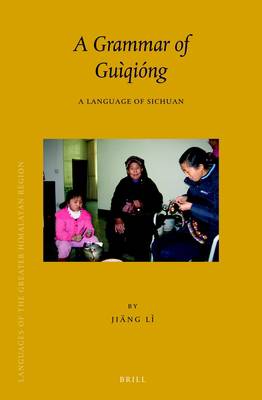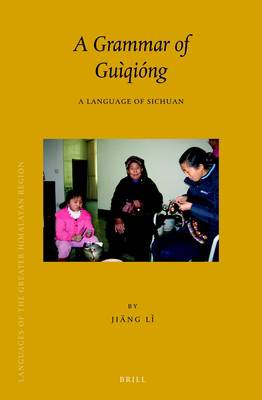
- Afhalen na 1 uur in een winkel met voorraad
- Gratis thuislevering in België vanaf € 30
- Ruim aanbod met 7 miljoen producten
- Afhalen na 1 uur in een winkel met voorraad
- Gratis thuislevering in België vanaf € 30
- Ruim aanbod met 7 miljoen producten
Zoeken
Omschrijving
In A Grammar of Guìqióng, Jiāng Lì describes the grammar of Guìqióng, a hitherto undocumented language spoken by alpine people in Kāngdìng county, China. Guìqióng has a lot to offer in its phonology, verbal and nominal morphology, syntax and glossary, distinguishing itself from the neighbouring Tibetan, Chinese, Qiangic and Loloish languages.
The newly discovered features of Guìqióng include breathy vs. modal voice, indefinite number, ablative, ergative, instrumental, dative and genitive case markers, topic and emphatic markers, the diminutive suffixes, the pronominal and deictic systems, demonstratives and numerals, a rich store of differentiated copular verbs expressing equationality, inchoative, animacy vs. inanimacy, dependent existence and negation, verbal affixes indicating directions, present tense of experienced perceptions, gnomic tense, perfective vs. imperfective aspect, modality and evidentiality.
The newly discovered features of Guìqióng include breathy vs. modal voice, indefinite number, ablative, ergative, instrumental, dative and genitive case markers, topic and emphatic markers, the diminutive suffixes, the pronominal and deictic systems, demonstratives and numerals, a rich store of differentiated copular verbs expressing equationality, inchoative, animacy vs. inanimacy, dependent existence and negation, verbal affixes indicating directions, present tense of experienced perceptions, gnomic tense, perfective vs. imperfective aspect, modality and evidentiality.
Specificaties
Betrokkenen
- Auteur(s):
- Uitgeverij:
Inhoud
- Aantal bladzijden:
- 466
- Taal:
- Engels
- Reeks:
- Reeksnummer:
- nr. 15
Eigenschappen
- Productcode (EAN):
- 9789004292093
- Verschijningsdatum:
- 13/05/2015
- Uitvoering:
- Hardcover
- Formaat:
- Genaaid
- Afmetingen:
- 157 mm x 241 mm
- Gewicht:
- 839 g

Alleen bij Standaard Boekhandel
+ 683 punten op je klantenkaart van Standaard Boekhandel
Beoordelingen
We publiceren alleen reviews die voldoen aan de voorwaarden voor reviews. Bekijk onze voorwaarden voor reviews.








